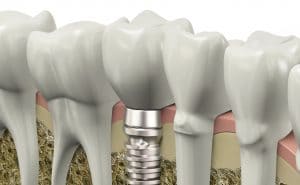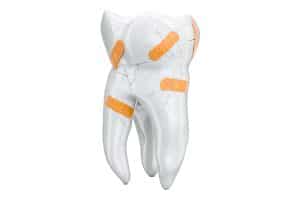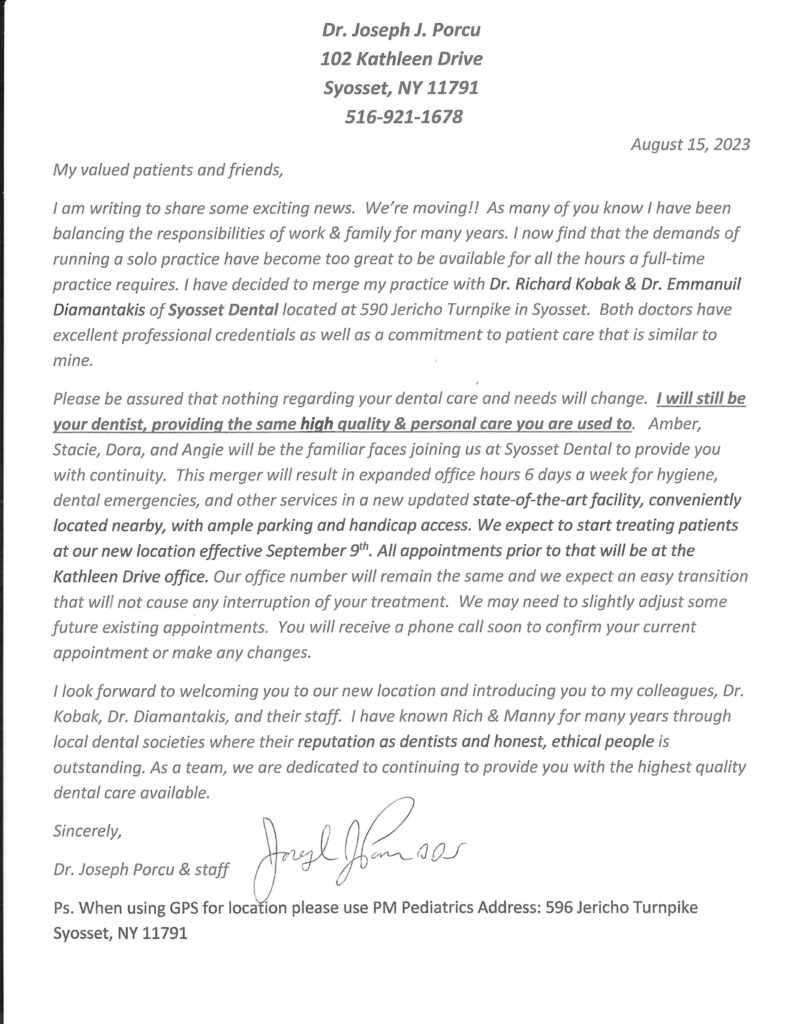 Cancer can manifest itself almost anywhere you in your body, but oral cancers are among the most common types. Nevertheless, it isn’t as talked about as often as many other forms of cancer, and perhaps because of the relative lack of awareness, many patients are left unprepared to properly look out for it or deal with it. Today, we examine a few things that everyone should know about oral cancer, including the vital role that your dentist plays in helping you detect it early and successfully treat it, if necessary. (more…)
Cancer can manifest itself almost anywhere you in your body, but oral cancers are among the most common types. Nevertheless, it isn’t as talked about as often as many other forms of cancer, and perhaps because of the relative lack of awareness, many patients are left unprepared to properly look out for it or deal with it. Today, we examine a few things that everyone should know about oral cancer, including the vital role that your dentist plays in helping you detect it early and successfully treat it, if necessary. (more…)
How Can Your Dentist Help You Stop Snoring?
 Millions of people snore every night, some louder and more often than others, but most people don’t realize that it might be a serious condition. Those that do worry about their snoring and want to seek help to stop often don’t realize that their dentist may be the best one to turn to for help. That’s because snoring is often the result of an issue with your oral or throat tissues. To address it, your dentist can use his oral health expertise to design a custom-made oral appliance that you can wear at night that helps you stop snoring and finally rest peacefully. (more…)
Millions of people snore every night, some louder and more often than others, but most people don’t realize that it might be a serious condition. Those that do worry about their snoring and want to seek help to stop often don’t realize that their dentist may be the best one to turn to for help. That’s because snoring is often the result of an issue with your oral or throat tissues. To address it, your dentist can use his oral health expertise to design a custom-made oral appliance that you can wear at night that helps you stop snoring and finally rest peacefully. (more…)
Tips for Jaw Pain Relief (Before Seeking TMJ Treatment)
 TMJ disorder is one of the most common causes for chronic jaw pain. In many cases, the only way to relieve it is to diagnose your condition so your dentist can design a customized treatment plan to correct it. In minor cases, however, you may be able to temporarily relieve the pain in your jaws with a few at-home remedies that help relax your jaw joints and muscles. Today, we take a look at a few tips for temporary jaw pain relief that you can try at home before deciding to seek professional TMJ disorder treatment. (more…)
TMJ disorder is one of the most common causes for chronic jaw pain. In many cases, the only way to relieve it is to diagnose your condition so your dentist can design a customized treatment plan to correct it. In minor cases, however, you may be able to temporarily relieve the pain in your jaws with a few at-home remedies that help relax your jaw joints and muscles. Today, we take a look at a few tips for temporary jaw pain relief that you can try at home before deciding to seek professional TMJ disorder treatment. (more…)
A Few Reasons Bad Breath Should Worry You
 If you experience chronic bad breath, then you might constantly worry about speaking too closely to someone out of fear that they’ll find out. If your bad breath doesn’t go away, however, then there may be several other reasons why you should worry about it. Everything about your dental health happens for a reason. In the case of bad breath, that reason might be as simple as inadequate hygiene or as complex as a progressive dental disease, like gum disease. (more…)
If you experience chronic bad breath, then you might constantly worry about speaking too closely to someone out of fear that they’ll find out. If your bad breath doesn’t go away, however, then there may be several other reasons why you should worry about it. Everything about your dental health happens for a reason. In the case of bad breath, that reason might be as simple as inadequate hygiene or as complex as a progressive dental disease, like gum disease. (more…)
What Gum Disease Has to Do with American Heart Month
 Every February, the American Heart Association sponsors American Heart Month to help raise awareness of one of the deadliest chronic conditions, heart disease. Though it may seem unrelated, preventing or treating gum disease can play a significant role in taking care of your cardiovascular health. Patients who exhibit severe gum disease are at higher risks of heart disease and other related conditions, thanks mainly to the inflammation related to untreated gum disease. Today, we take a look at that connection, and why healthy gums are a part of heart disease awareness. (more…)
Every February, the American Heart Association sponsors American Heart Month to help raise awareness of one of the deadliest chronic conditions, heart disease. Though it may seem unrelated, preventing or treating gum disease can play a significant role in taking care of your cardiovascular health. Patients who exhibit severe gum disease are at higher risks of heart disease and other related conditions, thanks mainly to the inflammation related to untreated gum disease. Today, we take a look at that connection, and why healthy gums are a part of heart disease awareness. (more…)
What Is Facial Collapse? (And How Dental Implants Help)
 There are many consequences to your oral health and quality of life after losing one or more teeth. Many of these consequences aren’t as immediately obvious as the appearance of your smile, though they can eventually prove just as detrimental to your self-confidence. Facial collapse, for instance, is the gradual sinking of your jaw and facial features that often becomes noticeable years after tooth loss. Unlike your smile’s immediate appearance, simply filling in the gap won’t successfully address facial collapse. However, you can prevent it, and other consequences of tooth loss, by replacing your lost teeth with dental implants. (more…)
There are many consequences to your oral health and quality of life after losing one or more teeth. Many of these consequences aren’t as immediately obvious as the appearance of your smile, though they can eventually prove just as detrimental to your self-confidence. Facial collapse, for instance, is the gradual sinking of your jaw and facial features that often becomes noticeable years after tooth loss. Unlike your smile’s immediate appearance, simply filling in the gap won’t successfully address facial collapse. However, you can prevent it, and other consequences of tooth loss, by replacing your lost teeth with dental implants. (more…)
3 Good Uses for Tooth Bonding
 Some of the more common tooth blemishes might affect your smile’s appearance, but they often aren’t as serious or complicated to address as they seem. In many cases, that means your dentist can quickly and conveniently address them, often without any permanent alterations to your tooth structure. For instance, with cosmetic tooth bonding, your dentist can address a wide variety of issues by using customized, tooth-colored composite resin. While it’s considered a cosmetic treatment due to its highly lifelike appearance, tooth bonding can also help improve a tooth’s strength and integrity to improve its long-term health. (more…)
Some of the more common tooth blemishes might affect your smile’s appearance, but they often aren’t as serious or complicated to address as they seem. In many cases, that means your dentist can quickly and conveniently address them, often without any permanent alterations to your tooth structure. For instance, with cosmetic tooth bonding, your dentist can address a wide variety of issues by using customized, tooth-colored composite resin. While it’s considered a cosmetic treatment due to its highly lifelike appearance, tooth bonding can also help improve a tooth’s strength and integrity to improve its long-term health. (more…)
What Are the Long-Term Benefits of Dental Implants?
 After losing one or more teeth, the most important step to preserving your smile is to replace them. Besides the improvement to your smile’s appearance, replacing lost teeth also restores your bite’s function and reduces your risk of other dental issues. Compared to traditional options like dental bridges and dentures, dental implants can offer a wide variety of benefits for restoring your smile. From improved comfort and stability to better long-term oral health following tooth loss, the benefits of dental implants often make them the ideal tooth replacement option. (more…)
After losing one or more teeth, the most important step to preserving your smile is to replace them. Besides the improvement to your smile’s appearance, replacing lost teeth also restores your bite’s function and reduces your risk of other dental issues. Compared to traditional options like dental bridges and dentures, dental implants can offer a wide variety of benefits for restoring your smile. From improved comfort and stability to better long-term oral health following tooth loss, the benefits of dental implants often make them the ideal tooth replacement option. (more…)
How to Save Your Smile from a Cracked Tooth
 Given the fact that your teeth are the strongest parts of your body, you may wonder how and why do they sometimes seem to crack so easily? The truth is, they don’t. For a tooth to crack or fracture, it must be exposed to immense pressure, such as from an uneven bite or accidental trauma. When a tooth does crack, it loses most of its strength and durability, making it vulnerable to further damage. Fortunately, your dentist can help save your smile from a cracked tooth by restoring it as soon as possible. (more…)
Given the fact that your teeth are the strongest parts of your body, you may wonder how and why do they sometimes seem to crack so easily? The truth is, they don’t. For a tooth to crack or fracture, it must be exposed to immense pressure, such as from an uneven bite or accidental trauma. When a tooth does crack, it loses most of its strength and durability, making it vulnerable to further damage. Fortunately, your dentist can help save your smile from a cracked tooth by restoring it as soon as possible. (more…)
Is It Possible to Prevent Teeth Stains?
 Teeth stains don’t have to be severe to have a noticeable impact on your smile’s appearance. Against the uniformity of your healthy, natural teeth, even minor stains can become glaringly obvious. Unfortunately, teeth stains aren’t always preventable like other dental issues. The good news, though, is that most common teeth stains can often be erased quickly and conveniently with professional teeth-whitening. You can also hinder teeth stains from developing to keep your smile brighter for longer with a good hygiene routine and regular preventive dental visits. (more…)
Teeth stains don’t have to be severe to have a noticeable impact on your smile’s appearance. Against the uniformity of your healthy, natural teeth, even minor stains can become glaringly obvious. Unfortunately, teeth stains aren’t always preventable like other dental issues. The good news, though, is that most common teeth stains can often be erased quickly and conveniently with professional teeth-whitening. You can also hinder teeth stains from developing to keep your smile brighter for longer with a good hygiene routine and regular preventive dental visits. (more…)











